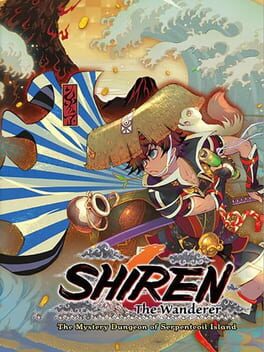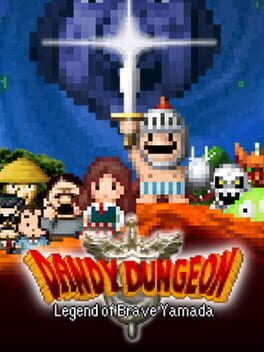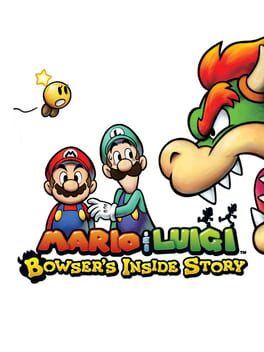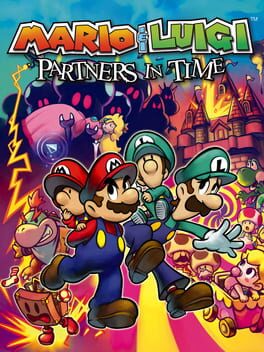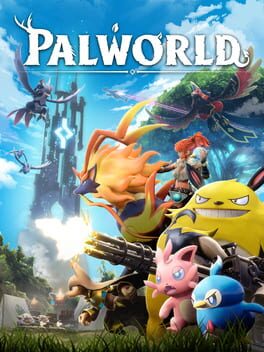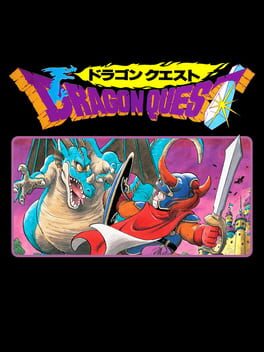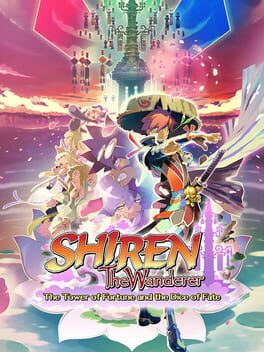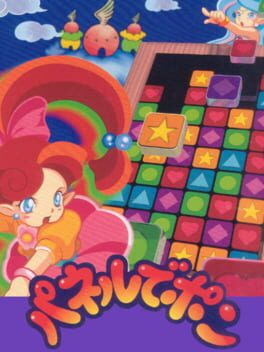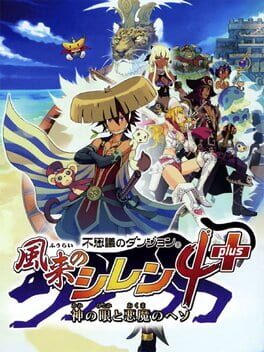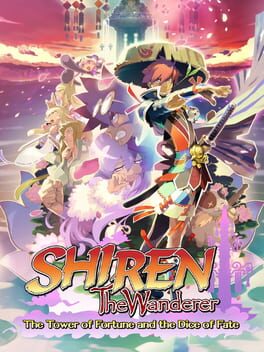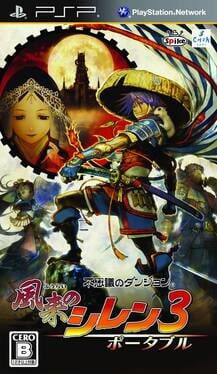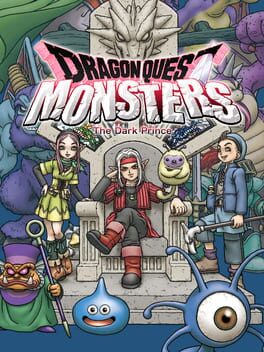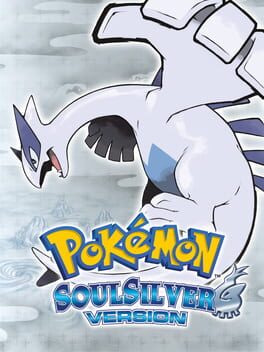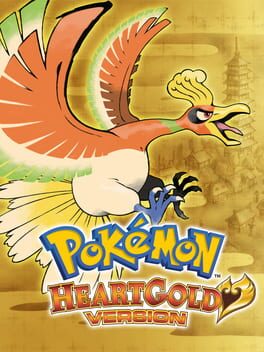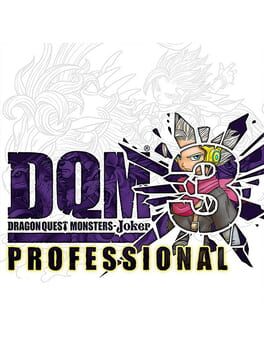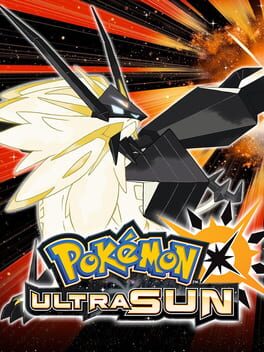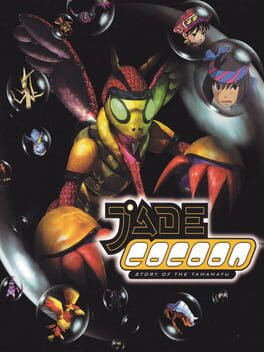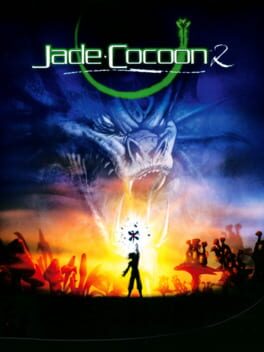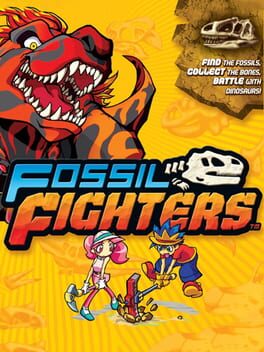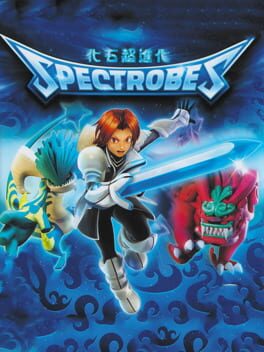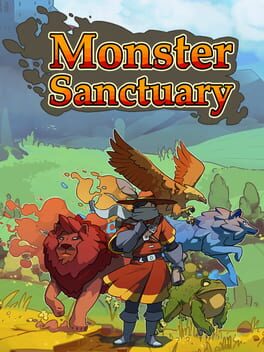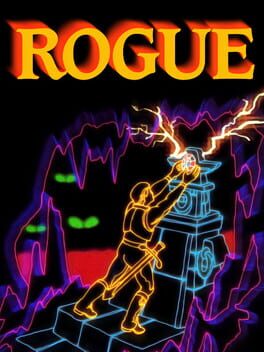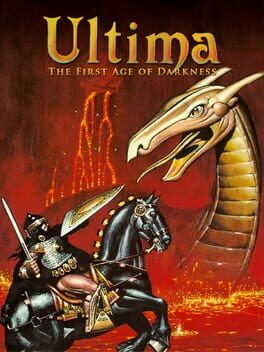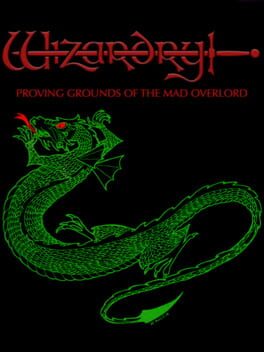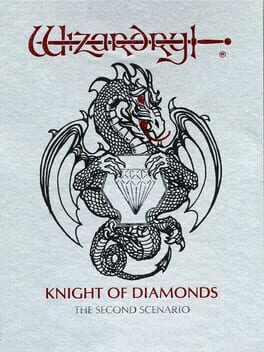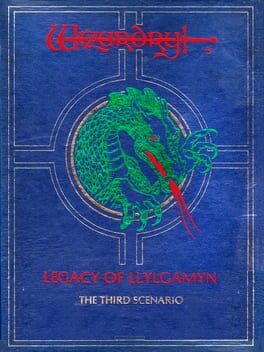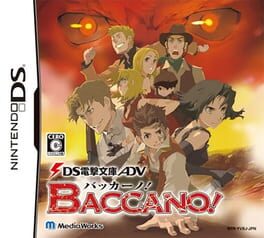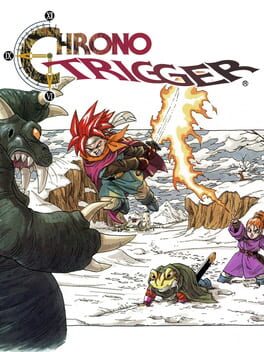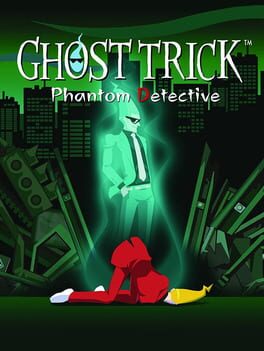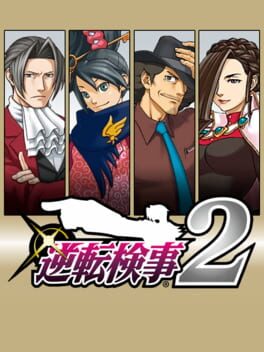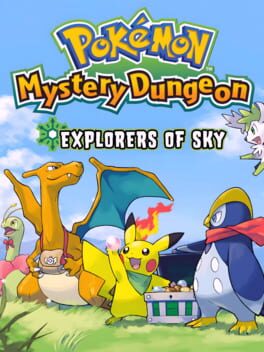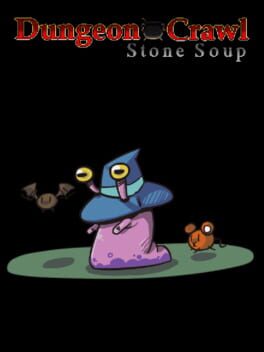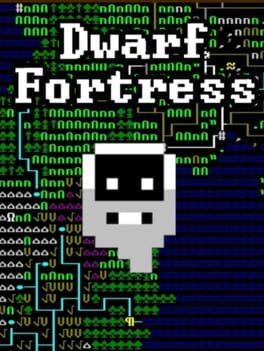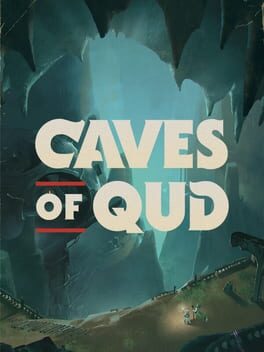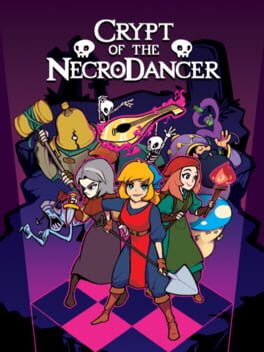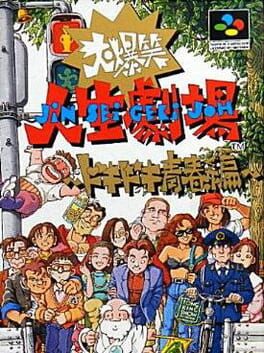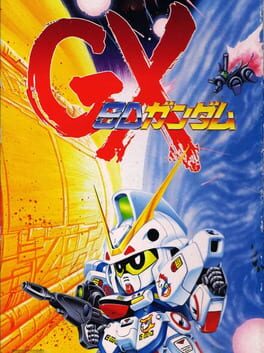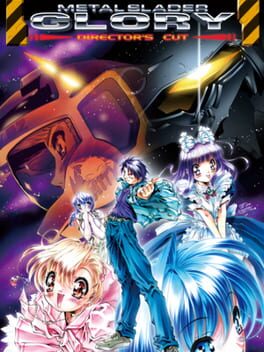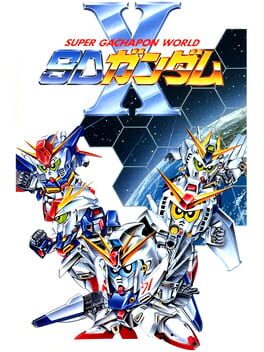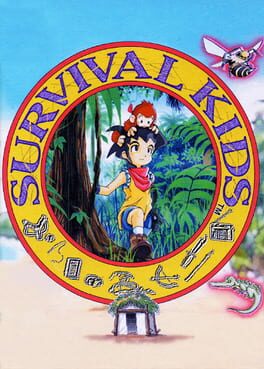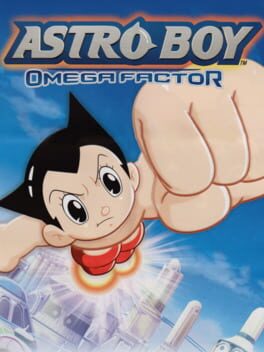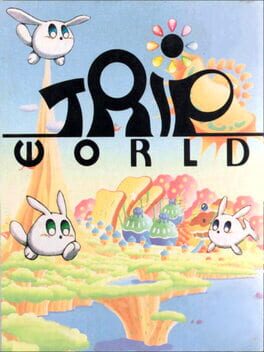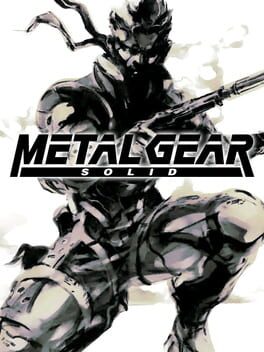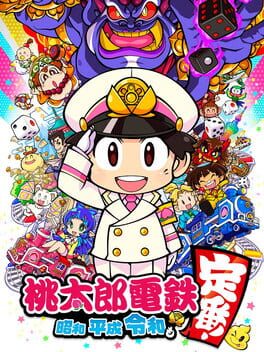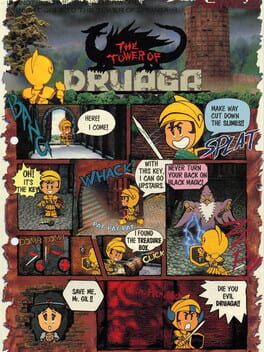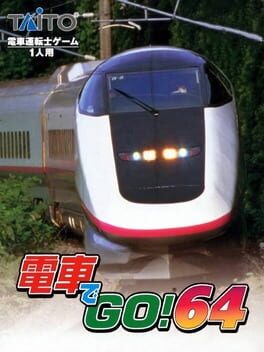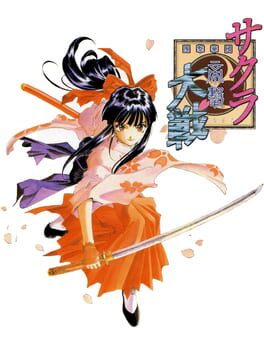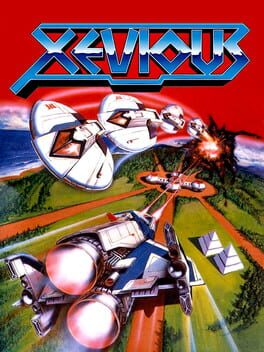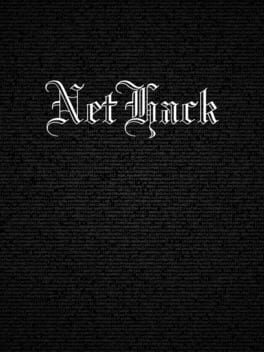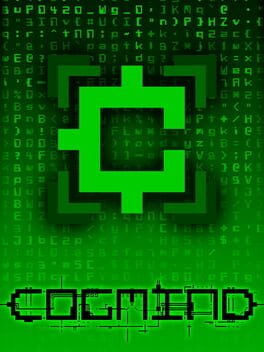Alanis
59 reviews liked by Alanis
Dandy Dungeon is a mobile game released a few years later on Switch, and it's made by Onion Games, the fine folks who hold a lot of the most important alums from Love De Lic (who made games like moon RPG). Now, these are technically one game and then the massive free expansion billed as an in-game sequel. However, not only because we so often count here both originals and expansions/DLCs as separate entries on our beaten lists, but also because the expansion here is both SO massive and also has a lot of important differences compared to the original, I felt it was right to review them simultaneously but also differentiate between them. It took me some 15~20 hours to beat the original Dandy Dungeon in English, and another 25~30 hours to finish the sequel and the rest of the side content (most of it anyhow).
Dandy Dungeon is, as the title explains out, the story of Yamada, who is a hopelessly single and incredibly quirky games programmer in his mid-30's. He lives alone and slaves away for Empire Games every day at work, but he has dreams of making his own game. One day, the day the game you're playing starts, he beings designing his OWN game, the game within the game that you yourself will begin playing. However, he starts skipping work to do this, and he summarily gets fired as the chairman of the company comes down to berate him and beat him up. This all coincides with the arrival of Maria-chan in the adjacent apartment to Yamada, a beautiful girl who loves blue skies, the ocean, and eating sweet potatoes in autumn. Yamada tries to use his game to win Maria-chan's heart and save her as the princess in each of the dungeons in it, but Empire Games break into his house (he should really buy a lock for his door) and reprogram it to lock his source code and foul it up with their own machinations. It's up to Yamada (and by extension you) to beat his game within the game and win Maria-chan's heart!
Now all of that is kind of a lot, and it is on purpose. Like most of Onion Games's games, their works don't have nearly as much to say as something from their past like moon RPG, but they still have something to say nonetheless. Dandy Dungeon is a delightful pastiche of video games as well as of the people who make and play them. It continuously blurs the wall between the reality of Yamada's game-within-a-game and the world he actually lives in, and the dialogue writing is genuinely really funny. I was worried I'd fill up my Switch with all of the dialogue screenshots I was taking it was making me cackle so hard XD. Dandy Dungeon's main story is localized impeccably, and is a fantastic example of how to do localization incredibly right.
Dandy Dungeon 2 takes place immediately after the first game, once you've beaten Empire Games, rescued Maria-chan, and gotten her hand in marriage, she's whisked away (in a very obvious parody of the original Ghosts'n'Goblins intro) by a new foreign games company: Dark Solid. Yamada's friends(?) from his Empire Games days come to his aid to stop this new threat to Maria-chan and Japan itself, as Yamada must scour Tokyo's Yamanote Train Line to beat up the weirdos who have inhabited each station.
The sequel and other expansion content change things up in a few new ways. The goal is very much still to rescue Maria-chan, most certainly, but the messaging has gone from "pastiche" to "being the Ur Mobile Game", from having an in-game microtransaction store (which in the mobile version actually IS a microtransaction store, but here uses in-game currency) called mamazon.mom to goading you for how the game never has to end if you never rescue Maria-chan. Though it sadly dips its toes much more thoroughly into the weeds of casual racism and transphobia/homophobia than the original game (which never even touches it, really), the good, funny quality of the writing stays present. The other sad thing here is that the localization is notably far less polished, at times feeling more like a rough draft than a finished product. It for the most part is fine, and it's just far worse-looking in comparison to how good the original game's localization is, but it also impacts your ability to understand the game's instructions at points that actually make it kinda impossible to proceed without doing random trial and error (but I'll get into those specifics later). The sequel's story is a fine and fitting addition to the first game, but it's lower quality, particularly in the translation department, can't really be ignored.
Now, you're probably asking: What the heck is the game-within-a-game that we're Yamada-ing through these two games, anyhow? That's a great question! What Dandy Dungeon is is a rogue-lite played one floor at a time. Dandy Dungeon is a game composed of dozens of dungeons composed of (usually) a few floors each, and your goal is to get from the start to the end of each floor by drawing one continuous line over each and every tile in it. Yamada will then follow this line unchangingly, fighting whatever enemies he comes across as well as picking up treasure. You can equip a helmet, armor, a shield, and a weapon (all of which are upgradeable) before you go in (and these can give special passive bonuses). You also can take along five items which can be activated once their cooldowns wear off (and items can only be used so many times before they break, and the cooldown lengthens with every use until breaking).
It's probably not hard to tell from the description that this was originally a mobile game, but it's a damn good and addicting one. Navigating around the walls, monsters, and traps in each dungeon has a really fun puzzle-solving dopamine hit to it, and it scratched a very familiar itch to something like how Paper Mario: Origami King's puzzle-based combat did for me. The strategy of how to tackle each stage, from what weapons or armor sets it's best to bring, to if a perfect floor completion is even worth trying for (you're just not getting experience for monsters unkilled and you also take damage for every tile left uncovered) was engaging enough that it had me playing from dawn 'til dusk for a week straight over winter vacation XD. Dungeons are generally very quick and can be knocked out at your leisure, and you don't even get a countdown timer until you start drawing your line, so you can take as much time as you need (except in certain special stages) to draw them. There's even a mid-stage instant-revive mechanic for if you need it. Every stage is theoretically do-able even without those revives (although some seem pretty suspect in that regard), and grinding for them does take a while, but it's nice that at the end of the day, if you put in enough time, you can brute-force any problem with time if you're dedicated enough.
Now that's all fun (and I really mean it) and dandy (excuse the pun ;b), but not all is well in Dandy Land. The game suffers from a few unfortunate problems, and the sequel suffers from more of them. The principal problem that the main game suffers from (as well as the sequel) is that there is simply a best load out to use. Status effects such as sleep, poison, darkness, and confusion are very common in varying degrees from the mid-game forward, so using the high-level armor that nullifies this stuff is obviously the best choice. Weapons suffer a similar problem, as quite quickly you realize that your biggest priority isn't exploiting enemy racial bonuses (such as a weapon good against the undead), but simply a very high accuracy weapon to cancel out how damn much enemies dodge your moves. Actually being able to hit the target you're going for will make up for not getting that extra damage 99 times out of 100. It's not a game-breaker, and given that it's the biggest problem the original game faces, the original game walks out of this pretty damn unscathed, but it's regardless something that takes some of the fun out of getting new loot once you realize it's there.
The bigger problems are mostly present in the sequel. First of all is that the difficulty spike issue the main game uses is increased significantly. Some dungeons on the Yamanote Line are FAR harder than others, some farcically so, and its final bosses are an absolute joke in how unfair they are. This is hammered home by the whole "basically one best build" issue, so you feel like there isn't even much you can do to improve your chances. A lot of the difficulty comes from how the gimmick of the sequel is that each stop on the Yamanote Line (i.e. each dungeon) has its own ruleset you need to follow: Either a certain kind of equipment you need to enter it with, or a rule that needs to be followed mid-play or you get an instant game-over (such as being forbidden to heal outside of your free level-up heals). They're simultaneously a very clever way to get a lot more out of the game's limited design without changing things too drastically as well as a massive pain that are sometimes nearly unintelligible due to the poorer localization found in the sequel. You do get some cool new mechanics via mamazon.mom, such as the ability to take along an item that allows you to swap out your consumable items mid-dungeon, and that brings with it a whole new level of strategy. But as it is, the sequel is just a far less polished experience, and it really bums me out just how much of a slog the sequel is compared to the original.
The presentation of both games is absolutely excellent. Very charming 2D sprites which are super expressive and delightfully silly. Tons of little references to old Famicom games hidden here and there (or sometimes not even remotely hidden XD) and really fun and silly monster and NPC designs. The music is absolutely stellar, with tons of songs (particularly the special boss tracks in the sequel) being some of my favorite game music I've heard in while. The audio-visuals do a ton to boost up the already great work the writing is doing, and it's just as much of a draw as the writing is, as far as I'm concerned.
Verdict: Highly Recommended. Though I certainly have my problems with the sequel (it's more in the Recommended territory, tbh), Dandy Dungeon was an incredibly fun and addicting time I don't regret one second of. I genuinely got a little sad when it was over, not only because of the diegetic farewell they give you in-game, but with the knowledge there was simply no more Dandy Dungeon left to play! Onion Games's games tend to have an issue of being a bit too light on content for the money, but even at full price, Dandy Dungeon is an absolute steal that is super duper worth picking up.
Dandy Dungeon is, as the title explains out, the story of Yamada, who is a hopelessly single and incredibly quirky games programmer in his mid-30's. He lives alone and slaves away for Empire Games every day at work, but he has dreams of making his own game. One day, the day the game you're playing starts, he beings designing his OWN game, the game within the game that you yourself will begin playing. However, he starts skipping work to do this, and he summarily gets fired as the chairman of the company comes down to berate him and beat him up. This all coincides with the arrival of Maria-chan in the adjacent apartment to Yamada, a beautiful girl who loves blue skies, the ocean, and eating sweet potatoes in autumn. Yamada tries to use his game to win Maria-chan's heart and save her as the princess in each of the dungeons in it, but Empire Games break into his house (he should really buy a lock for his door) and reprogram it to lock his source code and foul it up with their own machinations. It's up to Yamada (and by extension you) to beat his game within the game and win Maria-chan's heart!
Now all of that is kind of a lot, and it is on purpose. Like most of Onion Games's games, their works don't have nearly as much to say as something from their past like moon RPG, but they still have something to say nonetheless. Dandy Dungeon is a delightful pastiche of video games as well as of the people who make and play them. It continuously blurs the wall between the reality of Yamada's game-within-a-game and the world he actually lives in, and the dialogue writing is genuinely really funny. I was worried I'd fill up my Switch with all of the dialogue screenshots I was taking it was making me cackle so hard XD. Dandy Dungeon's main story is localized impeccably, and is a fantastic example of how to do localization incredibly right.
Dandy Dungeon 2 takes place immediately after the first game, once you've beaten Empire Games, rescued Maria-chan, and gotten her hand in marriage, she's whisked away (in a very obvious parody of the original Ghosts'n'Goblins intro) by a new foreign games company: Dark Solid. Yamada's friends(?) from his Empire Games days come to his aid to stop this new threat to Maria-chan and Japan itself, as Yamada must scour Tokyo's Yamanote Train Line to beat up the weirdos who have inhabited each station.
The sequel and other expansion content change things up in a few new ways. The goal is very much still to rescue Maria-chan, most certainly, but the messaging has gone from "pastiche" to "being the Ur Mobile Game", from having an in-game microtransaction store (which in the mobile version actually IS a microtransaction store, but here uses in-game currency) called mamazon.mom to goading you for how the game never has to end if you never rescue Maria-chan. Though it sadly dips its toes much more thoroughly into the weeds of casual racism and transphobia/homophobia than the original game (which never even touches it, really), the good, funny quality of the writing stays present. The other sad thing here is that the localization is notably far less polished, at times feeling more like a rough draft than a finished product. It for the most part is fine, and it's just far worse-looking in comparison to how good the original game's localization is, but it also impacts your ability to understand the game's instructions at points that actually make it kinda impossible to proceed without doing random trial and error (but I'll get into those specifics later). The sequel's story is a fine and fitting addition to the first game, but it's lower quality, particularly in the translation department, can't really be ignored.
Now, you're probably asking: What the heck is the game-within-a-game that we're Yamada-ing through these two games, anyhow? That's a great question! What Dandy Dungeon is is a rogue-lite played one floor at a time. Dandy Dungeon is a game composed of dozens of dungeons composed of (usually) a few floors each, and your goal is to get from the start to the end of each floor by drawing one continuous line over each and every tile in it. Yamada will then follow this line unchangingly, fighting whatever enemies he comes across as well as picking up treasure. You can equip a helmet, armor, a shield, and a weapon (all of which are upgradeable) before you go in (and these can give special passive bonuses). You also can take along five items which can be activated once their cooldowns wear off (and items can only be used so many times before they break, and the cooldown lengthens with every use until breaking).
It's probably not hard to tell from the description that this was originally a mobile game, but it's a damn good and addicting one. Navigating around the walls, monsters, and traps in each dungeon has a really fun puzzle-solving dopamine hit to it, and it scratched a very familiar itch to something like how Paper Mario: Origami King's puzzle-based combat did for me. The strategy of how to tackle each stage, from what weapons or armor sets it's best to bring, to if a perfect floor completion is even worth trying for (you're just not getting experience for monsters unkilled and you also take damage for every tile left uncovered) was engaging enough that it had me playing from dawn 'til dusk for a week straight over winter vacation XD. Dungeons are generally very quick and can be knocked out at your leisure, and you don't even get a countdown timer until you start drawing your line, so you can take as much time as you need (except in certain special stages) to draw them. There's even a mid-stage instant-revive mechanic for if you need it. Every stage is theoretically do-able even without those revives (although some seem pretty suspect in that regard), and grinding for them does take a while, but it's nice that at the end of the day, if you put in enough time, you can brute-force any problem with time if you're dedicated enough.
Now that's all fun (and I really mean it) and dandy (excuse the pun ;b), but not all is well in Dandy Land. The game suffers from a few unfortunate problems, and the sequel suffers from more of them. The principal problem that the main game suffers from (as well as the sequel) is that there is simply a best load out to use. Status effects such as sleep, poison, darkness, and confusion are very common in varying degrees from the mid-game forward, so using the high-level armor that nullifies this stuff is obviously the best choice. Weapons suffer a similar problem, as quite quickly you realize that your biggest priority isn't exploiting enemy racial bonuses (such as a weapon good against the undead), but simply a very high accuracy weapon to cancel out how damn much enemies dodge your moves. Actually being able to hit the target you're going for will make up for not getting that extra damage 99 times out of 100. It's not a game-breaker, and given that it's the biggest problem the original game faces, the original game walks out of this pretty damn unscathed, but it's regardless something that takes some of the fun out of getting new loot once you realize it's there.
The bigger problems are mostly present in the sequel. First of all is that the difficulty spike issue the main game uses is increased significantly. Some dungeons on the Yamanote Line are FAR harder than others, some farcically so, and its final bosses are an absolute joke in how unfair they are. This is hammered home by the whole "basically one best build" issue, so you feel like there isn't even much you can do to improve your chances. A lot of the difficulty comes from how the gimmick of the sequel is that each stop on the Yamanote Line (i.e. each dungeon) has its own ruleset you need to follow: Either a certain kind of equipment you need to enter it with, or a rule that needs to be followed mid-play or you get an instant game-over (such as being forbidden to heal outside of your free level-up heals). They're simultaneously a very clever way to get a lot more out of the game's limited design without changing things too drastically as well as a massive pain that are sometimes nearly unintelligible due to the poorer localization found in the sequel. You do get some cool new mechanics via mamazon.mom, such as the ability to take along an item that allows you to swap out your consumable items mid-dungeon, and that brings with it a whole new level of strategy. But as it is, the sequel is just a far less polished experience, and it really bums me out just how much of a slog the sequel is compared to the original.
The presentation of both games is absolutely excellent. Very charming 2D sprites which are super expressive and delightfully silly. Tons of little references to old Famicom games hidden here and there (or sometimes not even remotely hidden XD) and really fun and silly monster and NPC designs. The music is absolutely stellar, with tons of songs (particularly the special boss tracks in the sequel) being some of my favorite game music I've heard in while. The audio-visuals do a ton to boost up the already great work the writing is doing, and it's just as much of a draw as the writing is, as far as I'm concerned.
Verdict: Highly Recommended. Though I certainly have my problems with the sequel (it's more in the Recommended territory, tbh), Dandy Dungeon was an incredibly fun and addicting time I don't regret one second of. I genuinely got a little sad when it was over, not only because of the diegetic farewell they give you in-game, but with the knowledge there was simply no more Dandy Dungeon left to play! Onion Games's games tend to have an issue of being a bit too light on content for the money, but even at full price, Dandy Dungeon is an absolute steal that is super duper worth picking up.
Brogue
2009
Brogue
2009
Traditional roguelikes (or as real ones say, simply roguelikes) have been a massive blindspot for me. It's such a niche genre that even the most popular games, such as Caves of Qud and Dungeon Crawl Stone Soup, I've only ever heard in passing and I'm unsure if I've even seen screenshots of either game. Well, there's no better time than the present, and over the past month, I've essentially been treating Brian Walker's Brogue as one of those old desktop games you play while doing homework.
That's not to say Brogue is simplistic, however. In fact, Brogue is very difficult and repeatedly kicked my balls until they were a red, pulsating, bloody mass. I often came away from the game frustrated and angry, only to relaunch it a few minutes later. It's not that Brogue is necessarily unfair, it's not, but the randomly generated nature of its level design and enemy placement does mean that there's a certain degree of unpredictability that leads to some runs being more difficult than others. I only got to depth 13 on my best run and felt I had gotten my fill by then. What kept me playing, then? Frankly, I didn't expect the game design to be as nuanced as it is. Brogue is a veritable sandbox in which you are given key items and are forced to make decisions in enemy and puzzle encounters with them. It's sort of similar to a survival horror game in this regard (though I'd never argue it is one), especially with how making bad moment-to-moment decisions can get you killed quickly. Items are typically not identified when you acquire them, requiring either usage or duration of time to discover their true properties. This can lead to dangerous scenarios if you're not careful. Putting on a powerful suit of armor will bite you later if you find out it's cursed after prolonged use. A random potion could turn out to be a potion of incineration and burn you to a crisp within seconds. These moment-to-moment decisions make Brogue rather stressful and tense, which is not what I expected at all from a (relatively) modern PC game less than four megabytes large. The environments you traverse are varied and often dangerous: pits of lava, fields of flammable grass, and goblin encampments with psychic totems. This means that Brogue is quite varied and you probably won't be getting bored if you have any proclivity with the genre. It shouldn't have to be stated that this game is the perfect "play while you're doing something else all day", and that's not to disparage it, the entirely turn-based nature means you can put it down and pick it up at any point without even having to pause it. There's not much to comment on visually, but I will say that the game's ASCII visuals are more detailed and dare I say beautiful than I expected. Bodies of water cycle colors between tiles which gives off the impression of undulating tides. Enemy visibility is great and each is given an easily identifiable ASCII symbol and color. More effort than I expected in that department.
If many roguelikes are of a similar quality to Brogue, I definitely want to explore the genre more. With a genre largely populated by hobbyists and genre enthusiasts, there's almost certainly no shortage of them. Brogue is a great game to get into roguelikes with, but beware of its high difficulty.
That's not to say Brogue is simplistic, however. In fact, Brogue is very difficult and repeatedly kicked my balls until they were a red, pulsating, bloody mass. I often came away from the game frustrated and angry, only to relaunch it a few minutes later. It's not that Brogue is necessarily unfair, it's not, but the randomly generated nature of its level design and enemy placement does mean that there's a certain degree of unpredictability that leads to some runs being more difficult than others. I only got to depth 13 on my best run and felt I had gotten my fill by then. What kept me playing, then? Frankly, I didn't expect the game design to be as nuanced as it is. Brogue is a veritable sandbox in which you are given key items and are forced to make decisions in enemy and puzzle encounters with them. It's sort of similar to a survival horror game in this regard (though I'd never argue it is one), especially with how making bad moment-to-moment decisions can get you killed quickly. Items are typically not identified when you acquire them, requiring either usage or duration of time to discover their true properties. This can lead to dangerous scenarios if you're not careful. Putting on a powerful suit of armor will bite you later if you find out it's cursed after prolonged use. A random potion could turn out to be a potion of incineration and burn you to a crisp within seconds. These moment-to-moment decisions make Brogue rather stressful and tense, which is not what I expected at all from a (relatively) modern PC game less than four megabytes large. The environments you traverse are varied and often dangerous: pits of lava, fields of flammable grass, and goblin encampments with psychic totems. This means that Brogue is quite varied and you probably won't be getting bored if you have any proclivity with the genre. It shouldn't have to be stated that this game is the perfect "play while you're doing something else all day", and that's not to disparage it, the entirely turn-based nature means you can put it down and pick it up at any point without even having to pause it. There's not much to comment on visually, but I will say that the game's ASCII visuals are more detailed and dare I say beautiful than I expected. Bodies of water cycle colors between tiles which gives off the impression of undulating tides. Enemy visibility is great and each is given an easily identifiable ASCII symbol and color. More effort than I expected in that department.
If many roguelikes are of a similar quality to Brogue, I definitely want to explore the genre more. With a genre largely populated by hobbyists and genre enthusiasts, there's almost certainly no shortage of them. Brogue is a great game to get into roguelikes with, but beware of its high difficulty.
Palworld
2024
Dragon Quest
1993
(snes version)
All but perfectly composed. The way the world folds out from your central location (the place you save), the magnificent numbers tuning where a 5 is the most beautiful thing you've ever seen, the hum of combat stripped to its essentials and the light open-world design that encourages interacting with its residents...Dragon Quest basically one-and-done'd it all. About the only thing I have any desire to ding it for is that magic is largely useless outside of healing and traversal, half your arsenal profoundly unnecessary in a game otherwise so tightly formed.
But honestly who cares when faced with Dragon Quest's greatest strength: its tone. Despite the image DQ has accrued of being lovely and charming and nostalgic and warm, this game is a profoundly sad experience. The world is dead. Towns are in ruins. Poison litters the ground as naturally as water and there are more bloodthirsty, alien monsters than there are people anymore. And every person you talk to time and time again puts it all on you: you have to save us, you are the only one who can. There are no party members, it's a journey of solitude. No friends to make, no campfire stories or wacky hijinx to get into, just the one thing you were born to do. You have no choice; it's in your blood. You can't even die, fate and duty so strong that you are brought back again and again until you succeed. Every inch of this game is oozing a melancholic weight heavier than just about anything in gaming. It's no coincidence that Koichi Sugiyama's (god not rest his soul) overworld theme here, the song you are treated to the most, brings to mind the fog before a rain more than any idea of adventure.
Palpable stuff! Stuff that is astounding in its own right but which also builds to a transcendent release at the end, one of the great narrative moments in a game, when you finally accomplish your goal and the world explodes into flowers and all the monsters vanish and everyone celebrates and you, the hero, freed from the grip of responsibility and expectation, life now perfectly without purpose, wander off to new worlds. (something something about killing the dark fascist lord and then rejecting your noble monarchal position to live free from systems of power)
I repeat: all but perfectly composed.
All but perfectly composed. The way the world folds out from your central location (the place you save), the magnificent numbers tuning where a 5 is the most beautiful thing you've ever seen, the hum of combat stripped to its essentials and the light open-world design that encourages interacting with its residents...Dragon Quest basically one-and-done'd it all. About the only thing I have any desire to ding it for is that magic is largely useless outside of healing and traversal, half your arsenal profoundly unnecessary in a game otherwise so tightly formed.
But honestly who cares when faced with Dragon Quest's greatest strength: its tone. Despite the image DQ has accrued of being lovely and charming and nostalgic and warm, this game is a profoundly sad experience. The world is dead. Towns are in ruins. Poison litters the ground as naturally as water and there are more bloodthirsty, alien monsters than there are people anymore. And every person you talk to time and time again puts it all on you: you have to save us, you are the only one who can. There are no party members, it's a journey of solitude. No friends to make, no campfire stories or wacky hijinx to get into, just the one thing you were born to do. You have no choice; it's in your blood. You can't even die, fate and duty so strong that you are brought back again and again until you succeed. Every inch of this game is oozing a melancholic weight heavier than just about anything in gaming. It's no coincidence that Koichi Sugiyama's (god not rest his soul) overworld theme here, the song you are treated to the most, brings to mind the fog before a rain more than any idea of adventure.
Palpable stuff! Stuff that is astounding in its own right but which also builds to a transcendent release at the end, one of the great narrative moments in a game, when you finally accomplish your goal and the world explodes into flowers and all the monsters vanish and everyone celebrates and you, the hero, freed from the grip of responsibility and expectation, life now perfectly without purpose, wander off to new worlds. (something something about killing the dark fascist lord and then rejecting your noble monarchal position to live free from systems of power)
I repeat: all but perfectly composed.
Shiren The Wanderer The Tower of Fortune and the Dice of Fate FINISHED! 11/10 Why this rating? Few games would do that, but everything about this game pleased me, from its gameplay and story, which by the way, even with a seemingly simple objective of helping Oyu and her incurable disease and Jirokichi who would do anything to save his loved one, the game had an emotional charge. , your adventure partners are all captivating and each one has their part in the story and helps you climb the tower of fortune, which by the way is quite a challenge! The difficulty increases with the floors of the tower you climb, but the tower is treacherous with each new floor, it's a surprise, traps, monsters that destroy your items or curse and create a debuff on everything that kills you. very well animated and detailed, all equippable weapons have their unique models, the description of weapons and items was always filled with a good mood, my total gameplay was 46:54 minutes of gameplay throughout the story and I also did some challenge quests During gameplay, I highly recommend the game, especially if you like Roguelike games, a good challenge and quality JRPGs, and also love old Japanese themes like me.
Panel de Pon
1995
11 lists liked by Alanis
by PeterGabriel |
16 Games
by DayChan |
79 Games
by Drax |
58 Games
by NoArrows |
529 Games
by railgun233 |
164 Games
by Quink |
23 Games
by brockf15 |
80 Games
by Tarnum |
27 Games
